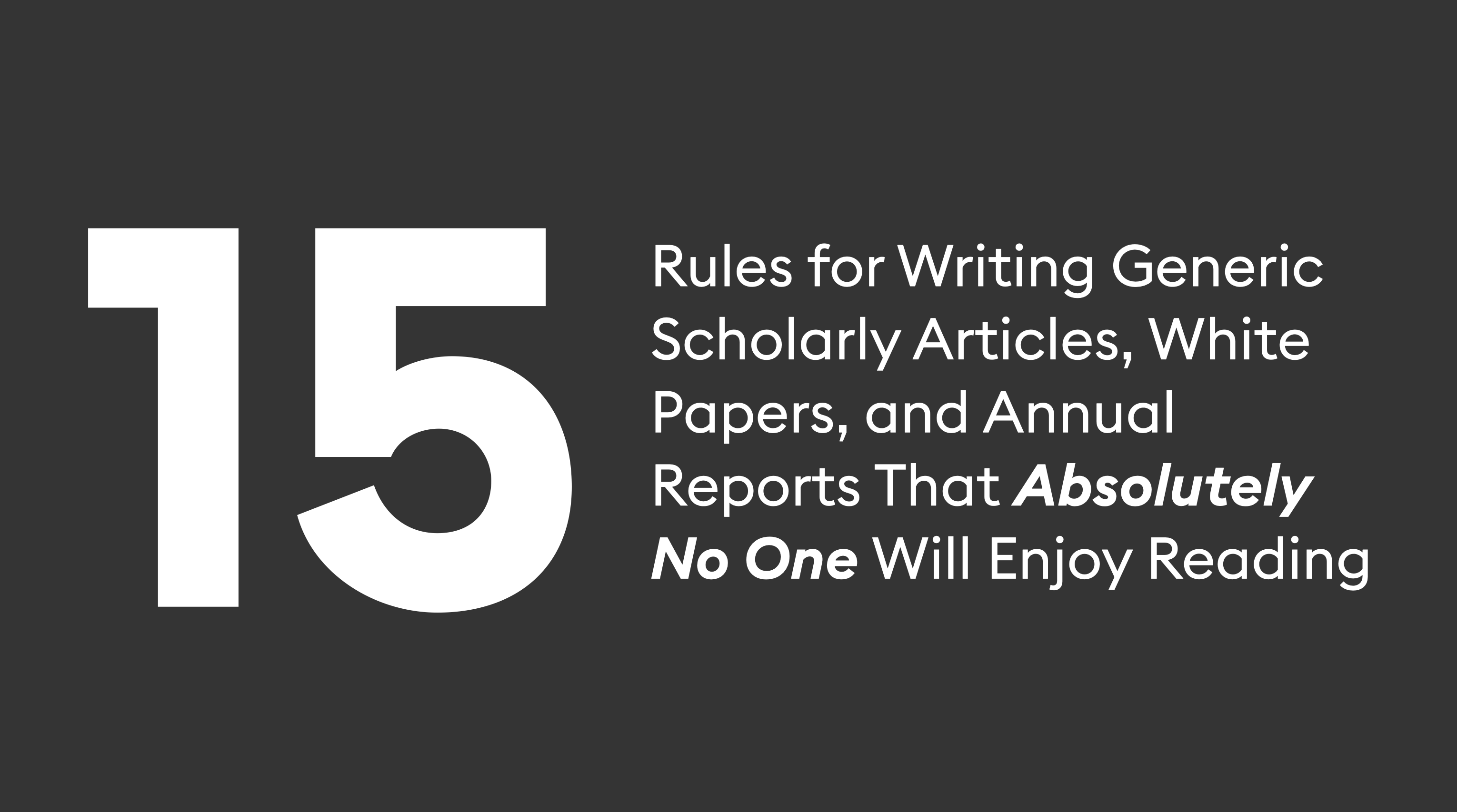
- The passive voice must always be used.
- Avoid simple words like “before” and “after.” Instead, opt for “prior to,” “in advance of,” and “subsequent to,” which will doubtless make you sound more intelligent.
- To leverage your core competencies, liaise with key stakeholders, and build capacity in oral and written expression, it is to be ensured that every management-speak cliché is utilized going forward by all personnel—or they may risk being rightsized for not using best practices in their writing methodology. Remember, you’ll never be impactful without lots of jargon and gobbledygook, so stay within the parameters.
- Never write “people.” Write “persons” and “individuals” instead—preferably ten times on the same page.
- Even though you finished grad school ten years ago, write as though you’ve got a professor who wants a specific word count. Pad your sentences and paragraphs with as many redundant, repetitious, pleonastic, redundant, and tautological phrases and locutions as possible. Make them circuitous and repetitive, too. “Overall,” “in the final analysis,” and “it is interesting to note” are also handy ways to lengthen a paper that’s otherwise short on content.
- Who needs “because” when you can use “due to the fact that,” “in light of the fact that,” and “owing to the fact that”?
- Add in some legalese for extra variety. You’ll always sound more authoritative if you say “pursuant to” instead of “under” or “according to.”
- Forget what Strunk and White said about omitting needless words. In fact, you should include a plethora of superfluous vocables in excess; otherwise, you won’t come across as scholarly enough. (See also Rule 5.)
- Spock and Data from Star Trek should be your models of good writing. Contractions make you sound personable, which is not the done thing.
- A paper is never complete without a few parenthetical references (PRs), especially for words that won’t be used anywhere else in the paper.
- Never start your sentences with “and” or “but.” Use heavy openers like “in addition” and “however” instead.
- When quoting sources, don’t use “said.” Words like “noted,” “indicated,” and “stated” sound more elegant, don’t you think?
- To sound more credible, say “evidence-based” and “best practices,” even when the evidence in question is a few online commenters, and the “best” practices aren’t even in the top ten.
- If you’re a psychology researcher, be sure to say that your respondents “endorsed” having depression and anxiety—because nine out of ten patients apparently endorse feeling like shit.
- Never get help with your writing. After all, your middle-school English teacher told you that you were the best writer in the class, so how much more help do you need?